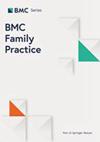戈马人使用药品零售商作为替代医疗服务提供者:一种冒险但合理的做法
IF 3.2
3区 医学
Q1 MEDICINE, GENERAL & INTERNAL
引用次数: 0
摘要
药品零售商是指专门从事药品零售的个人或机构,它们填补了全民医疗保健计划未覆盖地区医疗保健服务的空白。在刚果民主共和国的戈马,此类零售商如雨后春笋般涌现,半数以上的人都会将其作为第一求助渠道,因此,在任何健康状况下,它们都扮演着替代医疗渠道的重要角色。本研究的目的是了解戈马人使用药品零售商而非正规医疗系统的理由。我们在四个礼拜社区开展了 12 个焦点小组讨论,共有 147 人参加,涵盖了戈马最常见的信仰。每个礼拜社区组织了三次焦点小组讨论:一次针对父亲,另一次针对母亲,还有一次针对慢性病患者和/或高危人群。我们采用定性和归纳的方法分析了参与者在使用药品零售商方面的做法和看法。我们确定了解释使用药品零售商的原因和选择特定药品零售商的主要类别。当面临健康问题时,我们研究中的大多数参与者倾向于首先在医药零售商处购买药品,因为它便宜、快捷且容易获得。大多数人都意识到了这种做法的风险和局限性,并制定了一系列缓解策略以降低风险:评估药品零售商的专业知识;发展 "医疗专业知识";主动寻求同理心护理。戈马人在求助于药品零售商时会做出有意识的理性选择,因为在复杂的情况下,这被视为最不坏的选择。为了降低风险,他们制定了一系列缓解策略。未来的研究应侧重于将药品零售商作为一个专业群体来组织,以改善在戈马这样一个敏感环境中对他们的监管,并侧重于将他们与正规医疗系统联系起来的方式,以保证所有人都能在经济上获得医疗保健服务。本文章由计算机程序翻译,如有差异,请以英文原文为准。
The use of medicine retailers by people of Goma as an alternative healthcare provider: a risky but rational practice
Medicine retailers, considered here as any person or setting dedicated to the sale of retail medicines, fill an important gap in terms of access to healthcare in areas where population are not covered by universal healthcare schemes. In Goma in the Democratic Republic of the Congo, such retailers have proliferated and are consulted as the first port of call by more than half of the population, playing therefore a key role as an alternative source of healthcare for any type of health condition. The objective of this study is to understand people of Goma’s rationale for using the medicine retailers over the formal healthcare system. Twelve focus groups, gathering 147 participants in total, were conducted in four worship communities, covering the most common faiths practised in Goma. Three focus group discussions were organised per worship community: one with fathers, another with mothers, and another with chronic patients and/or highly vulnerable people. We used a qualitative and inductive approach to analyse the participants’ practices and perceptions in terms of their use of medicine retailers. We identified central categories explaining the reasons for using medicine retailers and the choice of a specific medicine retailer. When facing a health problem, most of the participants in our study tended to first buy medicines at medicine retailers because it was cheap, quick, and easily accessible. Most were aware of the risks and limitations of such practices and had developed a number of mitigation strategies in order to reduce those risks: evaluating medicine retailers’ expertise; developing a “medical expertise”; and seeking proactively out empathetic care. People in Goma make a conscious and rational choice when resorting to medicine retailers as it is seen as the least-worst option in a complex situation. In order to reduce the risks, they have developed a number of mitigation strategies. Future research should focus on the organisation of medicine retailers as a professional group to improve their supervision in a sensitive context such as Goma and on modalities to articulate them to the formal health system to guarantee a financial accessibility to healthcare for all.
求助全文
通过发布文献求助,成功后即可免费获取论文全文。
去求助
来源期刊

BMC Family Practice
医学-医学:内科
CiteScore
3.20
自引率
0.00%
发文量
0
审稿时长
4-8 weeks
期刊介绍:
BMC Family Practice is an open access, peer-reviewed journal that considers articles on all aspects of primary health care research. The journal has a special focus on clinical decision making and management, continuing professional education, service utilization, needs and demand, and the organization and delivery of primary care and care in the community.
 求助内容:
求助内容: 应助结果提醒方式:
应助结果提醒方式:


